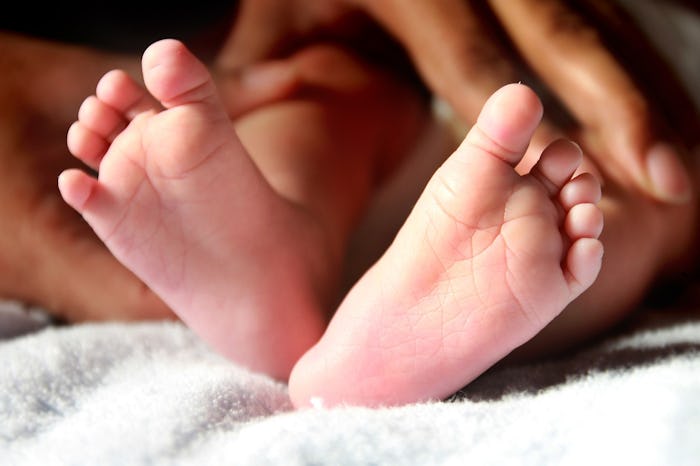Life
Can You Claim A Baby Born Late In The Year As A Dependent On Your Tax Return?
One of the first things I remember a friend saying when I told her I was pregnant wasn't a traditional congratulatory remark. Instead she excitedly told me, "You're gonna love filing your taxes!" Those were words I never thought I'd hear anyone say since tax season is pretty much loathed by everyone. Luckily, our son was born in January, so there was no question about if we could claim him. However, a woman who has given birth as late as December might wonder if you can claim a baby born late in the year as a dependent.
Taxes are already confusing enough pre-parenthood, but it's important to know exactly how to go about claiming your baby as a dependent on your taxes. After all, the last thing you want is Mr. Government knocking on your door because you made an easily avoidable error. Luckily, navigating the murky waters of rules and requirements has become easier thanks to the wealth of knowledge available online. Most questions can be answered with a quick search, but occasionally you still have to read the fine print.
So can you claim a baby who was born late in the year as a dependent on your taxes? According to TurboTax, yes, you can claim your baby no matter when they were born. Still, there are some key facts you need to know before you start filling things out. Check out these quick pointers to make sure you're getting the most out of your taxes this year.
1Get A Social Security Number
That cute picture of you holding your newborn on Instagram won't be enough proof that your baby is indeed yours. In fact, when you're claiming your child, if you don't put down a Social Security Number, Turbo Tax notes that there's a $50 fine.
The easiest thing to do, which you might have already done, is file for your child's SSN at the same time you're applying for a birth certificate while you're still in the hospital. If you didn't, don't worry. You can file a SS-5 Form from the Social Security Administration.
2Determine Eligibility For The Child Tax Credit
In addition to the money you'll save solely from claiming your child as a dependent, you could get an extra $1,000 child tax credit. If your child already meets all the requirements for being claimed as a dependent, all you need to find out is where you rank income-wise.
3Figure Out How You're Filing
Having a child won't actually affect your filing status if you're married. However, if you're single, you might be able to file instead as a head of household (HoH) and increase your deduction.
To find out if you qualify as HoH is quite simple. As long as you are the one paying for the majority of your home and family's needs, then you can go ahead and look forward to a bigger standard deduction.
4Take Adoption Into Account
From mom groups to friends' statuses on Facebook, I've seen people wonder if there is a difference in claiming your child as a dependent if they are not biologically related. Don't worry, your child is your child. In fact, you might actually qualify for an adoption tax credit. This credit could help offset some of the costs that build up throughout the adoption process. And again, it doesn't matter if you adopted your child late in the year, you can still claim them.
5Consider Day Care
Even if your child was born late in the year, if you paid for child care that allowed you to earn a taxable income, you might also be eligible for a child care credit. Obviously there are variables based on how much you make and how much you are paying for child care and whether or not your day care is tax exempt, but it's good to know that there are many ways to ensure you're getting the most out of your tax return.
